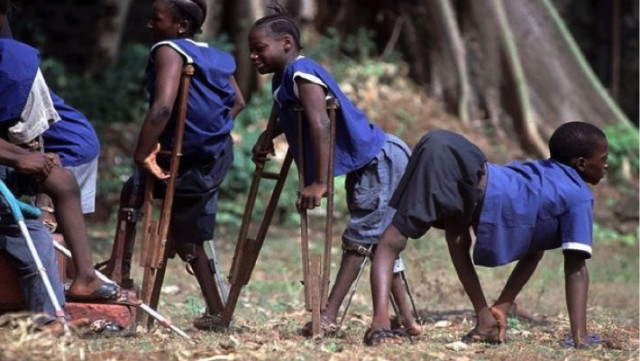KADUNA, Nigeria (NAN) - The United Nations Children’s Fund (UNICEF) has urged the Kano state government to enhance its efforts in combating polio and to bolster its commitment to routine immunisation.
UNICEF’s chief of the Kano field office, Rahama Farah, made this appeal on Sunday in Kaduna during an orientation for 44 local government area chairpersons and district leaders concerning polio eradication, routine immunisation, and primary healthcare services in the state.
Ms. Farah stressed the importance of sustained political will to ensure that every child in the state receives essential vaccines.
She pointed out that Kano is a pivotal state in Nigeria's fight against polio, which continues to pose a risk in certain regions.
She further encouraged the state government to collaborate with local communities and health workers to tackle the obstacles faced in accessing underserved populations.
"Kano has the highest number of children in Nigeria who have never received any routine immunisation vaccines. This is not merely a statistic; it represents the future of nearly a quarter of a million children at risk of preventable diseases that threaten their lives and the well-being of our communities."
"This issue is not isolated but rather a troubling trend that jeopardises the health of our entire state. This is exacerbated by the concerning increase in variant poliovirus cases recorded in our state. In 2022, there were 6 cases; this number rose to 27 in 2023 and currently stands at 29 in 2024. This upward trend underscores the urgent need for a collective initiative to protect our children,” she said.
Ms. Farah referred to the stakeholders as pillars of the community, emphasising that their voices are valued and influential across Kano.
She urged them to intensify their efforts to reach every part of the state and motivate parents to vaccinate their children.
"Through your leadership, you have the power to elevate awareness regarding the significance of immunisation and the threats posed by vaccine-preventable diseases," she asserted.
Earlier, the state’s commissioner for health, Abubakar Labaran, reiterated the administration's dedication to enhancing healthcare services.
Ms. Labaran noted that the current administration has made significant advancements in healthcare, particularly in the realms of vaccination, polio eradication, and reducing maternal mortality rates.
In his remarks, the director-general of the state primary healthcare management board, Nasiru Mahmud, stated that the purpose of the workshop was to update stakeholders on healthcare indicators, immunisation, polio eradication, and the issue of zero-dose children within the state.
He also highlighted the necessity of familiarising participants with their responsibilities in addressing these challenges and securing their commitment.
Several participants committed to intensifying their actions and collaborating closely with UNICEF to eradicate polio and enhance routine immunisation.




















